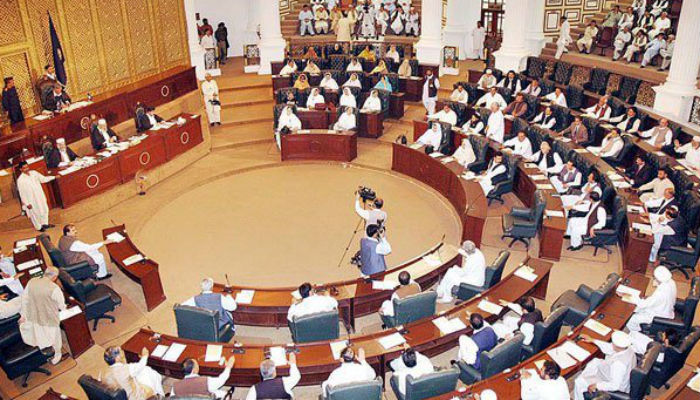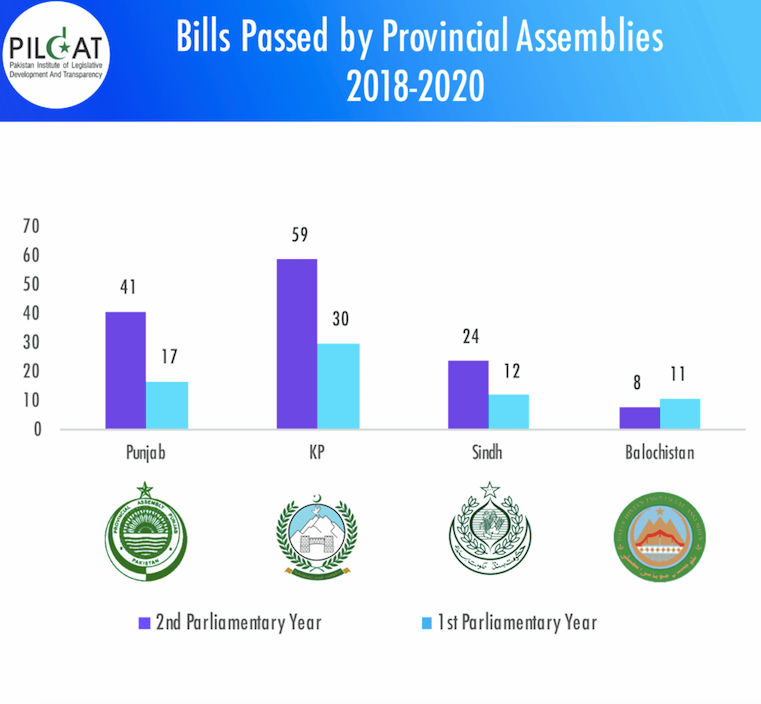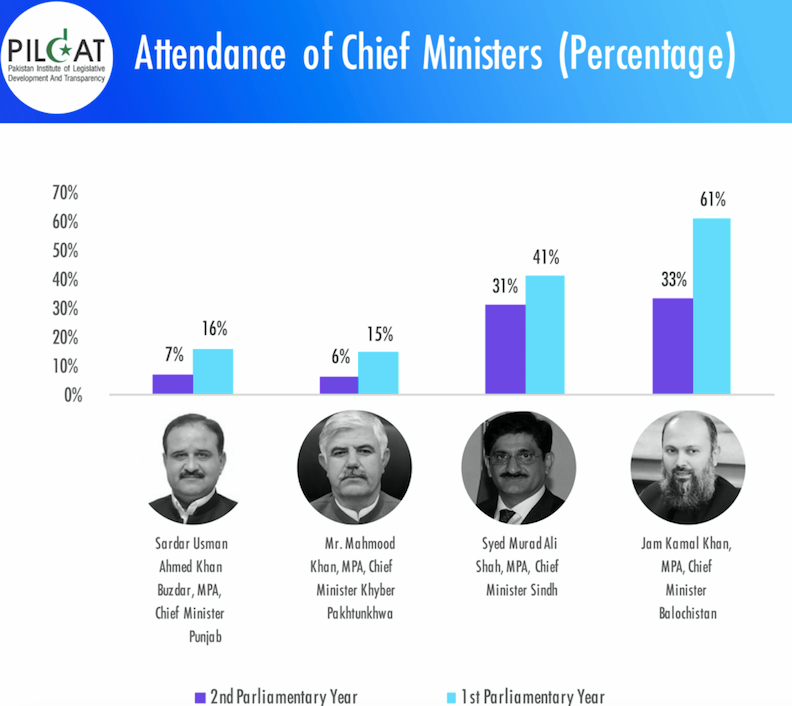Legislative productivity: KP assembly outranked others, made most laws
Due to COVID-19, all four provincial assemblies had fewer sittings in the second parliamentary year in comparison to the first
August 20, 2020

In the last two years, since the formation of a new government after the 2018 polls, the Khyber Pakhtunkhwa provincial assembly has passed the most number of legislations, outranking other provincial assemblies in the country, according to a report by the Pakistan Institute of Legislative Development and Transparency (PILDAT).
In a newly published study, the Islamabad-based think-tank compared the performance of Pakistan’s four provincial assemblies in the last two parliamentary years.
As per its findings, the Khyber Pakhtunkhwa assembly passed 59 public laws in the second year, from August 2019 to date. Punjab ranked in second with the passage of 41 laws, followed by Sindh with 24 laws while Balochistan lagged behind the other three by having passed only eight laws during the second year.

Even when legislative activities of both the first and second year are compared, the northwestern province leads with a total of 89 bills enacted since August 2018. Followed by the Punjab assembly with 58 bills in two years, Sindh with 36 and Balochistan could only make 19 laws.
However, due to the outbreak of the coronavirus in Pakistan, all four provincial assemblies had fewer sittings in the second parliamentary year in comparison to the first.
Sindh led in the second year by holding the maximum number, 68 sittings, compared to other provincial assemblies, which was a decrease of 25% from the previous year.
Punjab met for 67 days during the second year, a reduction of 13%. The Khyber Pakhtunkhwa province ranked third by holding 52 sittings, a drop of 15% from the first year. Balochistan Assembly met for only 33 days during the second year, with a decrease of 35%.
But the PILDAT report adds that the number of sittings by each assembly does not provide a complete picture, for which it is also important to analyse the duration for which each assembly met.
“A comparative analysis of time spent by each assembly per sitting shows that the hours spent by each assembly per sitting do not vary much between assemblies,” the report adds, “Rarely does a sitting held by an assembly last more than 2.5 hours on average.”
Here again, the Sindh assembly lead in terms of having spent most working hours, over 168, during the second year, Punjab assembly spent a little over 140 hours, KP assembly met for 113 hours, while Balochistan Assembly held sessions for over 111 hours.
As for the attendance of the chief minister of each province in the assembly, there was a visible decline. Chief Minister Balochistan Jam Kamal Khan was ahead of the others by attending 33% sittings of the provincial assembly. Chief Minister Sindh Syed Murad Ali Shah attended only 31% sittings of the Sindh Assembly.

At a distant third was Usman Ahmed Khan Buzdar, the chief minister of Punjab, who has only attended 7% sittings of Punjab Assembly. While, Chief Minister Khyber Pakhtunkhwa Mahmood Khan attended 6% sittings of the KP Assembly.











